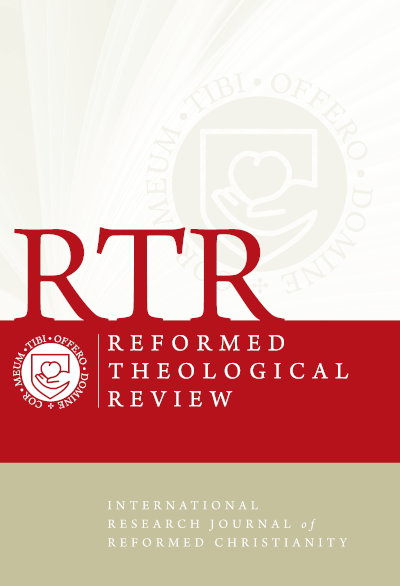Zwingli as the Father of the Hermeneutical Principle Fides quaerens intellectum
Main Article Content
Abstract
The first two Zurich Disputations of 1523 mark the beginning of a reformed ecclesiology. Moreover, they mark the beginning of a new understanding of Christian truth. ‘Truth’ can never be possessed by individuals or a church. It is always to be found only in listening to the word of the God who speaks through the medium of the Scriptures, in community with other Christians. The reservation of better instruction with regard to the understanding of the ‘divine Word’ and thus of Christian truth, which can, in principle, be provided by every Christian, was groundbreaking both for Christianity and for society on the threshold of the modern era.
Article Details
The Author/s grant/s to the Journal the rights to edit the Work and to reproduce and distribute the Work in the Journal, in reprints, as a contribution to a collection published by the Journal, and by means of an Internet or Intranet site over which the Journal exercises effective control, and also by means of third-party online legal information providers. The Author/s grant/s the above rights without claim of royalties or other compensation. The copyright in the Work shall remain with the Author/s and the copyright in the reproduction format shall remain with the Journal. Notwithstanding, the copyright notice in publication shall be stated as belonging to the Journal. The Author/s agree/s not to publish the Work elsewhere without the permission of the Journal for a period of five years commencing from the date of first publication by the Journal.
References
Barth, Karl: Fides quaerens intellectum, Karl Barth Gesamtausgabe 13, eds Eberhard Jüngel and Ingolf U. Dalferth (Zurich: Theologischer Verlag, 1981).
Dietrich, Christian: Die Stadt Zürich und ihre Landgemeinden während der Bauernunruhen von 1489 bis 1525 (Frankfurt am Main, Bern, New York: Peter Lang, 1985).
Eck, Johannes: Enchiridion locorum communium adversus Lutherum et alios hostes ecclesiae (1525 - 1543), (edited by Pierre Fraenkel) (Münster: Aschendorff, 1997 (Corpus catholicorum, Bd. 34).
Eck, Johannes: Enchiridion. Handbüchlin gemainer stell u. Artickel d. jetzt schwebenden neuwen leeren, Faksimiledruck der Ausgabe Augsburg 1533 (edited by Erwin Iserloh) (Münster: Aschendorff,1980) (Corpus catholicorum, Bd. 35).
Egli, Emil (ed.): Aktensammlung zur Geschichte der Zürcher Reformation in den Jahren 1519–1533 (Nr. 213) (Zürich: J. Schabelitz, 1879).
Haas, Martin: Huldrych Zwingli und seine Zeit (2nd ed.) (Zürich: Zwingli Verlag 1969).
Holenstein, André: ‘Politische Partizipation und Repräsentation von Untertanen in der alten Eidgenossenschaft’, Landschaften und Landstände in Oberschwaben: Bäuerliche und bürgerliche Repräsentation im Rahmen des frühen europäischen Parlamentarismus, ed. Peter Blickle (Tübingen: Bibliotheca Academica Verlag, 2000), 223–249.
Köhler, Walther: Huldrych Zwingli (revised edition Ernst Koch) (Leipzig: Koehler & Amelang, 1983.
Moeller, Bernd: Zwinglis Disputationen. Studien zur Kirchengründung in den Städten der frühen Reformation, 2nd edn (Göttingen: Vandenhoek & Ruprecht, 2011).
Müller, Barbara: ‘Zwingli und das Konzil von Gangra’, Zwingliana 33 (2006), 29–50.
Pfister, Rudolf: ‘Kirche und Glaube auf der Ersten Zürcher Disputation vom 29. Januar 1523’, Zwingliana 13 (1973), 553–569.
Zwingli, Ulrich: Emil Egli et al (eds), Huldreich Zwingli sämtliche Werke (Berlin, Leipzig, Zürich: C. A. Schwetschke und Sohn, 1905–2012).

